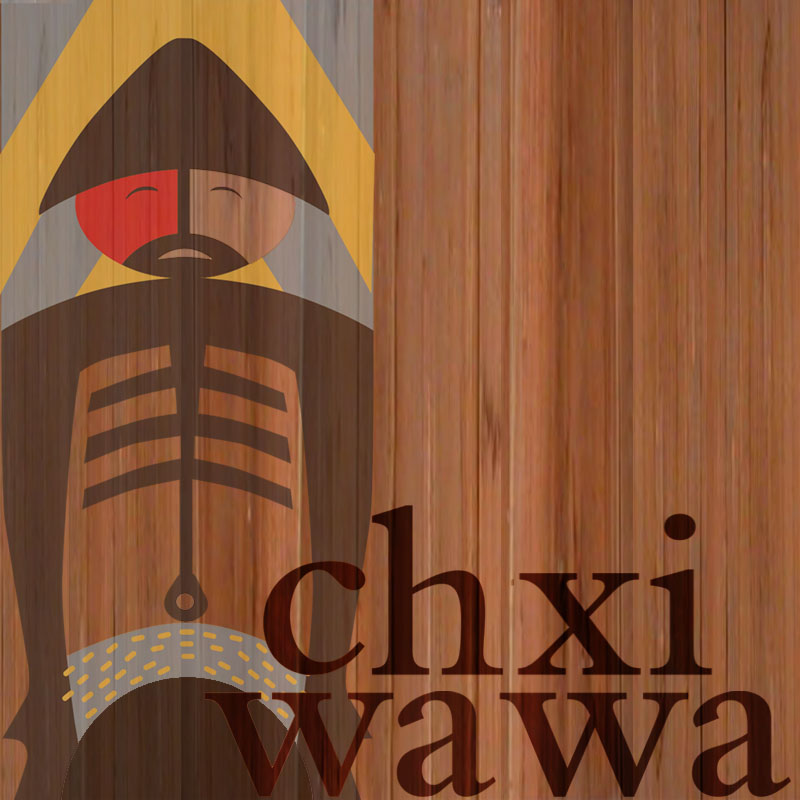Standing their ground is important to the Chinook way of life, according to Cushman. Revoking what federal government recognition language calls resource rights threatens the nation’s relationship with their other than human relations and the merit of sovereignty for all nations.
“When you take those rights, or try to prevent another community from having those rights, it’s an attack on sovereignty as a whole,” Cushman said.
“When other people are intervening and taking away from the merit of that sovereignty of that community’s claim, it’s just like it’s going against the natural law of our relationship to our homelands,” Cushman continued
“A cultural genocide” Threats to Chinook sovereignty have become even more dangerous after the 2023 NAGPRA revisions. NAGPRA requires all federally funded universities and museums to prepare all remaining ancestors and objects for repatriation by 2029 but it still focuses only on federally recognized nations, so until now Chinook ancestors were labelled as “culturally unaffiliated,” because they were unaffiliated with a currently federally recognized tribe. Chinook leadership believed that once they were able to achieve restoration of federal recognition that they would be able to return their ancestors home. Under the new regulations, and the 2029 deadline, inventories of Chinook ancestors, their grave items, and significant cultural objects can be given to any federally recognized Native nation that claims cultural affiliation.
Johnson has called this a cultural genocide.
“We’re seeing in real time other communities make claims of cultural affiliation to Chinook, specific ancestors and artifacts,” Johnson told Underscore + ICT.
When NAGPRA was passed in 1990 most institutions worked closely with the Chinook because they understood that the ancestors, their grave items, and significant cultural objects came from the Chinook aboriginal lands, even if ultimately they could not directly repatriate to them. That has now changed with at least one institution. The Chinook are being denied even the ability to see or consult on these NAGPRA eligible individuals and objects.
“At least one institution in recent weeks said that we will not even be allowed to visit the individuals or objects in question or that are enumerated on their inventories because of our status,” Johnson said. “Being denied the ability to access or look at some of the objects in question is a wild new step that’s really harmful to us.”
Moving Forward The third congressional district in Washington state is where the previous Chinook recognition bills were introduced by Brian Baird who served as a U.S. representative from 1999 to 2011. Because of this, Johnson believes it has become the default place where other people in the Washington and Oregon delegation look to for leadership on federal recognition. Gluesenkamp Perez even announced her support for Chinook federal recognition while she was a candidate for the position.
Members of the Chinook Indian Nation, including Council member Rachel Cushman and her son Kanim, 7, rally for federal recognition outside the Federal Courthouse in Seattle. They listen as Tribal Chairman Tony Johnson declares, “We exist, and we will continue. It is an obligation to our ancestors, the hell they went through to get us here, and to our children.” Each year that the Nation’s right to exist is denied, more elders who have dedicated their lives to seeking recognition are lost. (Photo by Amiran White)
Because Gluesenkamp Perez and the Chinook have been actively working on the bill since she took the role, Johnson believes other delegation folks have stepped back and waited for some resolution. He wants the other delegation leaders, including U.S. Sens. Patty Murray and Maria Cantwell of Washington, and U.S. Sens. Ron Wyden and Jeff Merkley of Oregon, and U.S. Reps. Marie Glusenkamp-Perez of Washington and Suzanne Bonamici of Oregon to know that the press release was about letting them know that the Chinook Indian Nation needs them to step up and take the lead.
“What I would say to any legislative delegation is, ‘Since when will you not introduce a bill because somebody’s opposed to it?” Johnson said. “Somebody’s opposed to every piece of legislation that is passed in Congress, right?”
Until then, the Chinook ask for support from Native nations that have claimed cultural affiliation to their ancestors through NAGPRA and the institutions that are currently housing them. According to Johnson, some neighboring Native nations to the Chinook have already rescinded their claims of cultural affiliation in support of Chinook.
“We have had recognized tribes regionally rescind their claims of cultural affiliation out of respect for and out of concern for Chinook,” Johnson said. “And the truth of the matter is, we would ask all other nations to do the same.”
Like with Chinook and Grand Ronde’s ancestral relationship, many Native nations have connections and could cast a broad net when recovering ancestors and objects but Johnson asks that to prevent any further harm happening to Chinook, every nation that would consider making a cultural affiliation claim on objects or individuals that come from the territory of the five constituent tribes — the Cathlamet, Clatsop, Lower Chinook, Wahkiakum, and Willapa — to rescind their claims.
“By far the best short term solution is for no claims of cultural affiliation to be made by any tribe on the objects or individuals from our territory,” Johnson said.
But Johnson shared that there are other Native nations that will continue to make claims of cultural affiliation which could result in Chinook ancestors and objects being relocated to those nations instead of their true ancestral homelands.
“Recognition is the only surefire way for us to have the standing we need for institutions to decide who has the strongest cultural claim or cultural affiliation,” Johnson said while adding that they need institutions to also step up and defend the “original intent of the law” whether that’s figuring out a fair way forward or to delay the repatriation process altogether until recognition is restored.
“We need everyone to do the right thing,” Johnson said.








